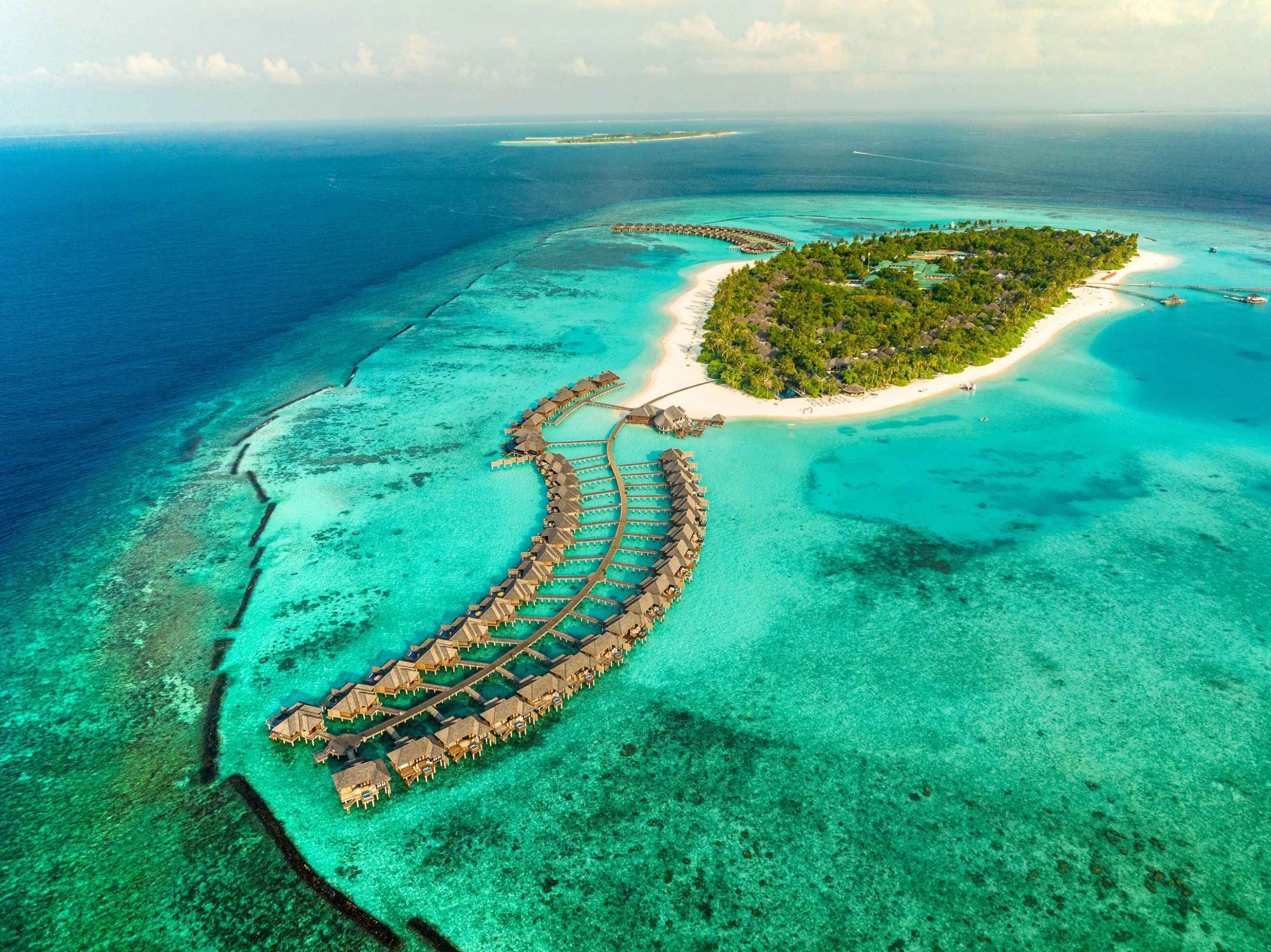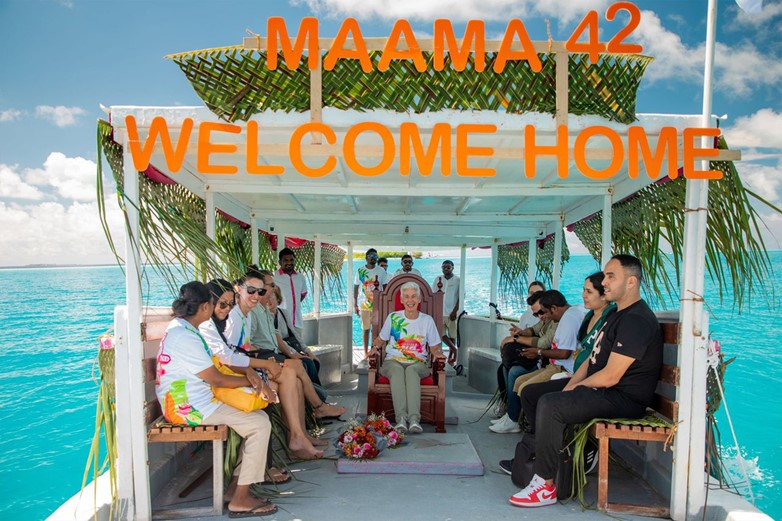Renting an island in the Maldives is now possible with this million-dollar island buyout package. The five-star resort Mövenpick Resort Kuredhivaru Maldives is now available for rent with its exclusive use of facilities that can be turned into a private tropical adventure playground.
At the contemporary resort too much is never enough and guests will have access to:
- The private 105 villas, suites and residences located both overwater and on the beach
- 4 creative restaurants, lounge bars and cafes, including ONU Marché all-day dining restaurant, Bodumas overwater seafood restaurant, Latitude 5.5 poolside grill and Mövenpick Coffee & Wine Lounge
- five-star PADI dive and watersports centre
- Sun Spa by Healing Earth
- recreational facilities such as tennis and volleyball courts, and many more.

According to Mövenpick Resort Kuredhivaru Maldives, guests who purchase the island for at least three nights will also have a chance to set their feet upon the island’s powder-white beaches. Likewise, they can explore the colourful marine life of the house reef located just next door to the overwater jetty.
The island buyout package includes:
- Accommodation at all 105 villas, suites, and residences with private pools
- Dining at all restaurants and bars
- All-Inclusive meal plan
- Unlimited non-motorized water sports and free snorkelling gear rental
- Discounts on meals, drinks and spa
- Daily sunrise and sunset yoga sessions
Price:
- From US$ 930,000 per three nights between 10 May – 30 September 2021
- From US$ 1,014,000 per three nights between 01 – 31 October 2021
- From US$ 999,000 per three nights between 01 November – 23 December 2021

All-inclusive benefits will also add up to the 24/7 enjoyment of the island’s lifestyle offerings such as; complimentary non-motorized watersports activities (snorkelling, windsurfing, SUP and kayaking) daily Mӧvenpick Chocolate Hours, daily mini-bar replenishment in the villas, limitless quality beverages until midnight, discounts on Destination Dining and spa with its free 30-minute massages, sunrise and sunset yoga sessions and treatment extensions.
For more information and bookings, contact the Reservations team by email Resort.Kuredhivaru.Reservations@movenpick.com or phone +960 656 3000.







